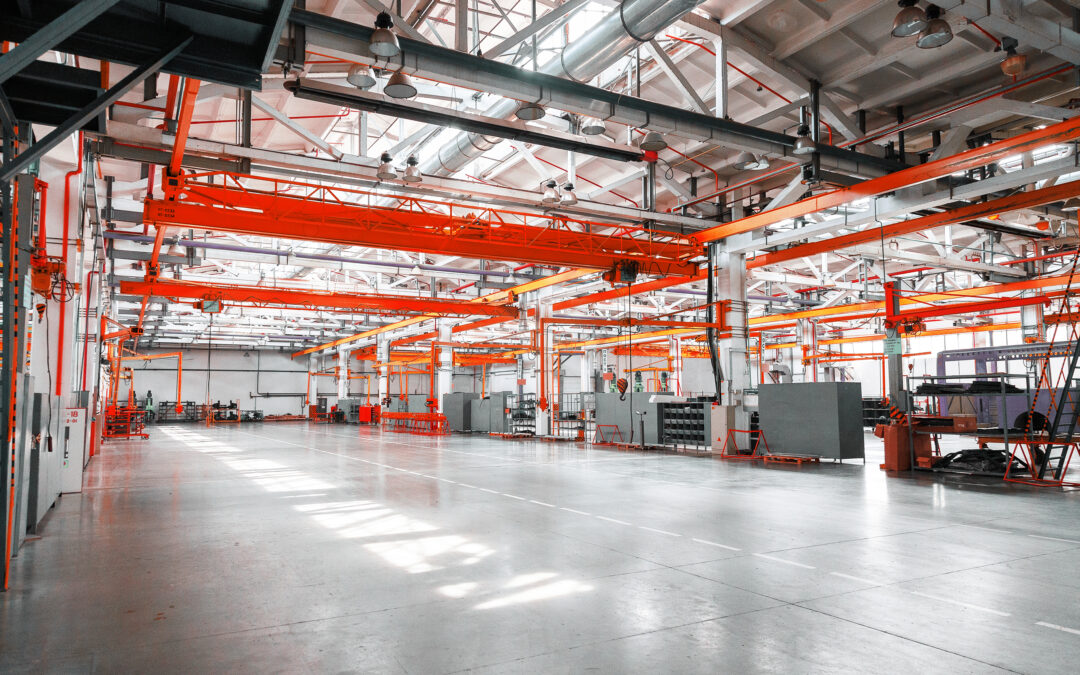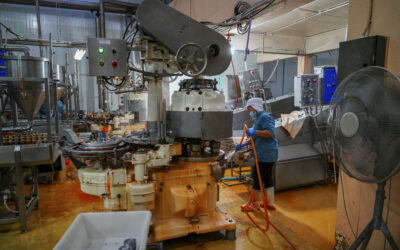Summer in industry: challenges and opportunities
We’re already in mid-July; the summer that seemed so far away is now here, and the fine weather is just around the corner. That’s good news! It’s the start of the holidays, for those who aren’t already enjoying them. For the others, the numbers are gradually shrinking. You’re going to have to deal with the consequences of the summer, on your own or in a reduced team. What happens in industry during the summer, and what are the consequences for the plant?
A number of factors have an impact on the industry during the summer. Some obviously depend on your trade. Other repercussions of the season are more generic and apply to everyone. But between constraints and holidays, how can you have a good industrial summer?
Workforce management, additional constraints during the summer
Going on holiday is (or was) seen in two ways in a factory. For the hierarchy, it’s a constraint. On the other hand, there’s the point of view of the person who goes on holiday, who is happy about it. Let’s be serious, although it’s a bit of a caricature, this view still exists in industry. What we’re going to see here is that, apart from being compulsory, holidays are part of a whole that enables the factory to function at its best during the rest of the year.
While the number of employees is falling, can’t the same be said of the order book? With the exception of industries in tense sectors, such as pharmaceuticals, demand falls during the two summer months. Even more so in August.
This year has been different again. With these difficult times, a general fatigue is being felt. At all levels, but especially for operators, technicians and workshop managers who have seen their working conditions deteriorate as a result of health measures. It’s often no longer possible to eat with colleagues without a plexiglass divider. Mandatory masks make communication difficult. Breaks are staggered and social relations are affected.
As well as being well-deserved, these holidays will be an opportunity for your teams to take advantage of the window that will allow us all to enjoy ourselves. We’re talking about a holiday that will allow us to get back to work rested. A well-prepared back-to-school period is a successful one. But how do you prepare for the start of the new year?
Preparing for the start of the new school year, the key to a worry-free summer
One of the consequences of the summer on industry is the slowdown in orders and therefore in machinery. There are a number of ways in which you can make the most of this time, and prepare as well as possible for the upturn in September. If your machine is not producing because the people in charge are on holiday, why not take advantage of this time to carry out maintenance?
During the rest of the year, machine load and staff availability are two factors that postpone maintenance operations. We sometimes end up with temporary solutions that remain in place for several months. The human mind gets used to this kind of problem, and no longer sees them as such over time. Before going on holiday, you can ask the person in charge of the machine if maintenance is necessary. They’ll probably say yes, but will they be thinking about the countermeasure (which works in spite of everything) that has been installed since February?
If you want to restart your production with peace of mind at the start of the new school year, don’t hesitate to take a look at your critical equipment. Ideally, you should rely on the breakdown history of each piece of equipment. That way, you can check every point that has already caused a stoppage. Don’t hesitate to open the technical documentation beforehand. Often overlooked, it’s full of advice from the manufacturer. This will enable you to make the most of the back-to-school period to deliver all your orders on time, thanks to reliable machines. But what if that’s not enough?
When your industry doesn’t stop in the summer
While some people take a dim view of their holidays being at the same time as school, this can be an opportunity for you. Even if the workshop is less full, it can still produce. And what about arriving in September with a head start on your orders? For people you trust, it’s easy to work independently. This may allow you to leave a few people in production during the slack period. Quite often, productivity increases even during these periods. With less pressure and fewer disturbances, our producers can concentrate on value-added tasks. Be careful, however, that the reduction in the workforce does not lead to a relaxation of safety and quality rules.
In larger structures, it can be complicated to allow operators to work autonomously, but the question of a small team with a small hierarchy is still conceivable. Here again, there are many advantages. It avoids stopping the machines for too long, binds the remaining teams together and keeps you producing. It will still be important to find time for maintenance.
Another point to watch out for is consumables. It can be more difficult to obtain supplies of consumables during the summer. You’ll need to anticipate the needs of the remaining staff. This can be easy when you’re talking about pairs of gloves or simple tools. When maintenance has dismantled a machine to check that it’s working properly, and a component is missing that needs to be replaced periodically, the story won’t be quite as simple.
In conclusion
This summer in the industry will be different for everyone involved. The most important thing to prepare for, and be comfortable with, is communication. You don’t want to be disturbed when you’re on holiday. You can be sure that your colleague who is still at work doesn’t want to interrupt your peace of mind either. The best way to avoid this happening is to make sure that the things that need to be done get done. To do this, you need to prepare for this period. Sit down around a table to discuss your needs and plans. An hour spent at the right time can save you several at the worst time.




0 Comments